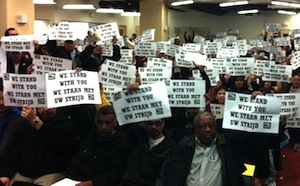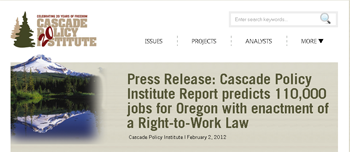Heritage to Chrysler: Support Right To Work to Help Michigan
From the Heritage Foundation an endorsement of Right To Work Freedoms for Michigan: Did you know that there are no Volkswagen manufacturing plants in the Detroit area? Or Mercedes-Benz? Or Kia? Or Hyundai? Or BMW, for that matter? Apart from having their cars assembled in Michigan, it turns out that those three companies have something else in common: the United Auto Workers union (UAW). It also turns out that every other car manufacturer has something in common, too: not wanting the UAW to do to them what it did to the Big Three. Today, President Obama will address the UAW, and he should receive a rousing welcome. After all, his terms of the auto bailout richly rewarded his union allies at the expense of non-union employees and private investors, giving them, among other prizes, a very large stake of ownership in Chrysler. And together, they stand adamantly opposed to "right-to-work" laws that would empower the nation's unemployed to find economic security with a non-union job. They claim they want to protect "the American auto industry," but this is not about "American cars." The controlling interest of Chrysler is Italy-based Fiat and previously was Germany's Daimler-Benz between 1997 and 2008. This is simply about protecting union fortunes. Chrysler can hire actors in Louisiana to play the part of Detroit workers, and it can produce cinematically brilliant television ads. But wouldn't Detroiters have more pride in a job than a commercial? Chrysler and the UAW must drop its opposition to Michigan's right-to-work legislation if it wants to pretend it cares. Right-to-work legislation protects employees from being fired for not paying union dues. Without that protection, workers are forced to support a union financially even if they'd rather spend their hard earned dollars at home, if the union contract harms them, or if they're opposed to the union's agenda. And if they don't, they lose their jobs. Obviously, when given the freedom of choice, many workers choose not to unionize.







